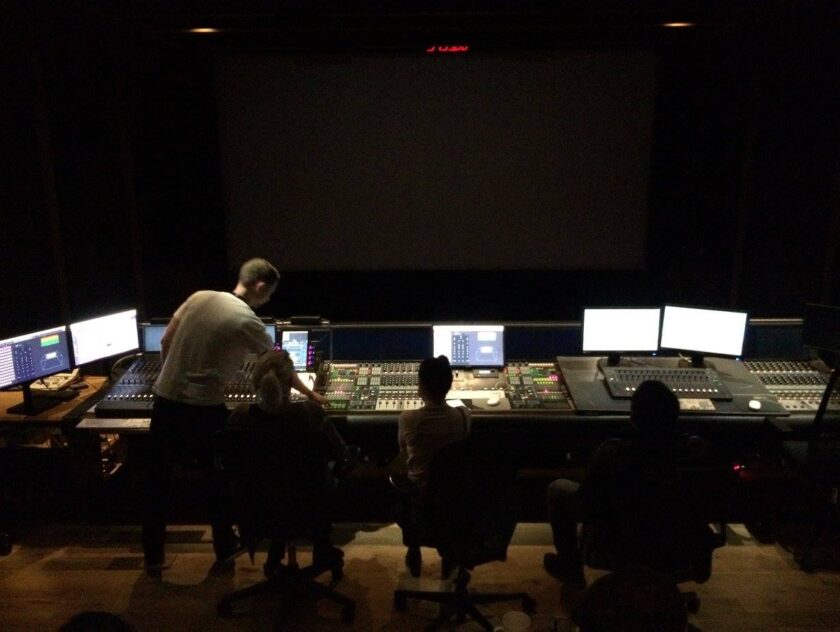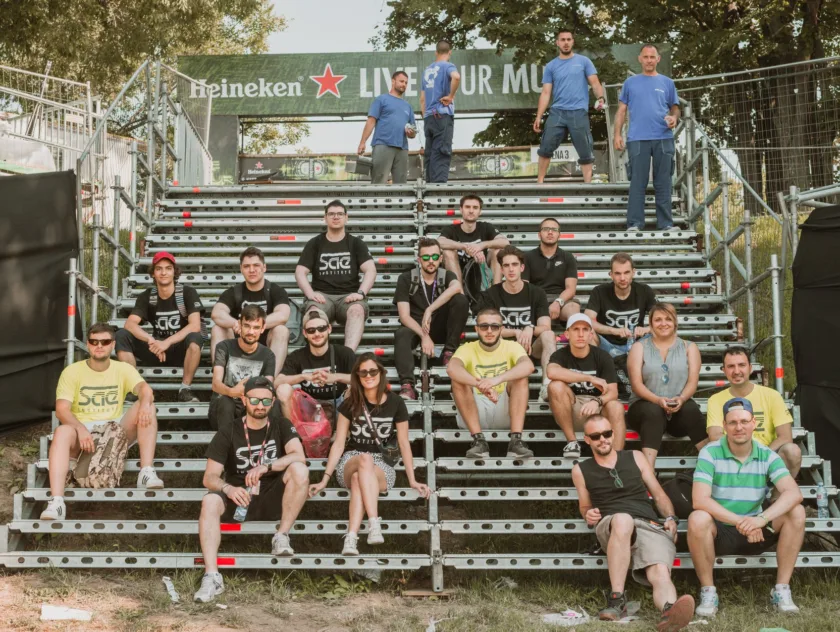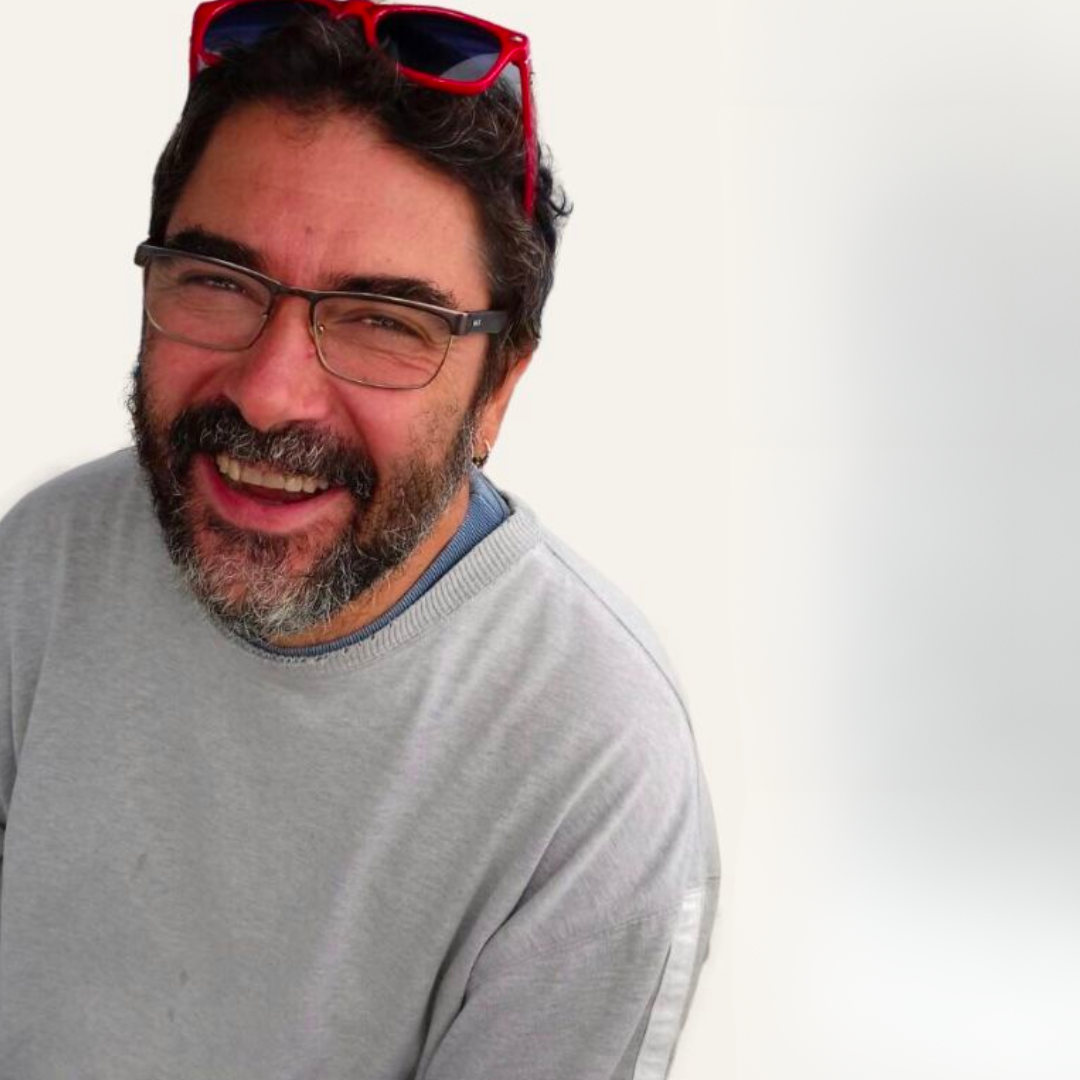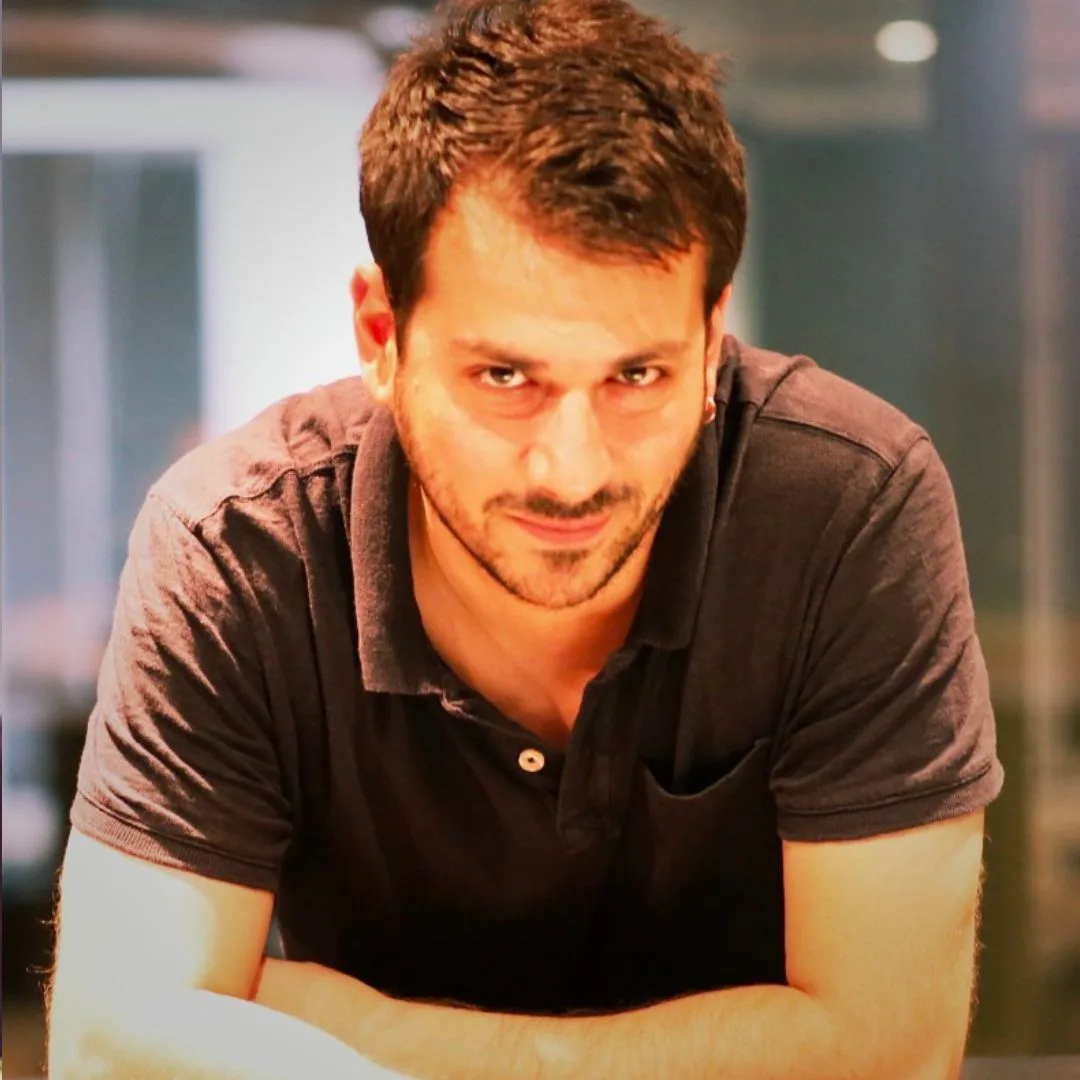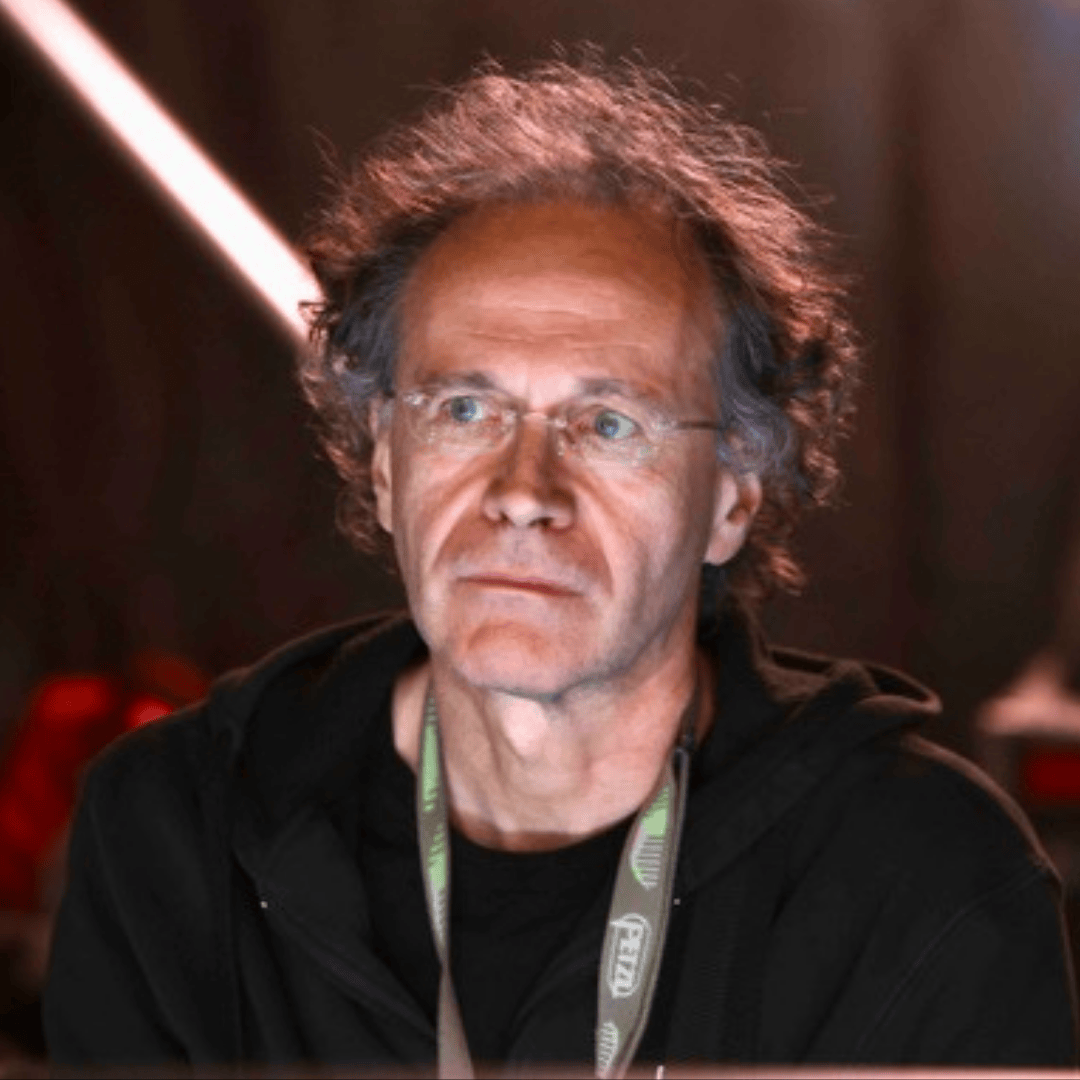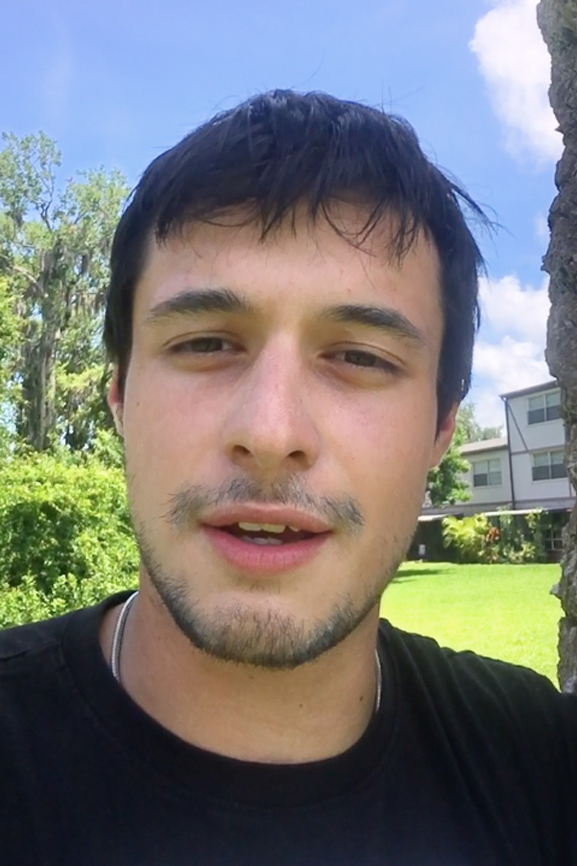Bachelor of Audio
MAKE SERIOUS NOISE IN THE AUDIO INDUSTRY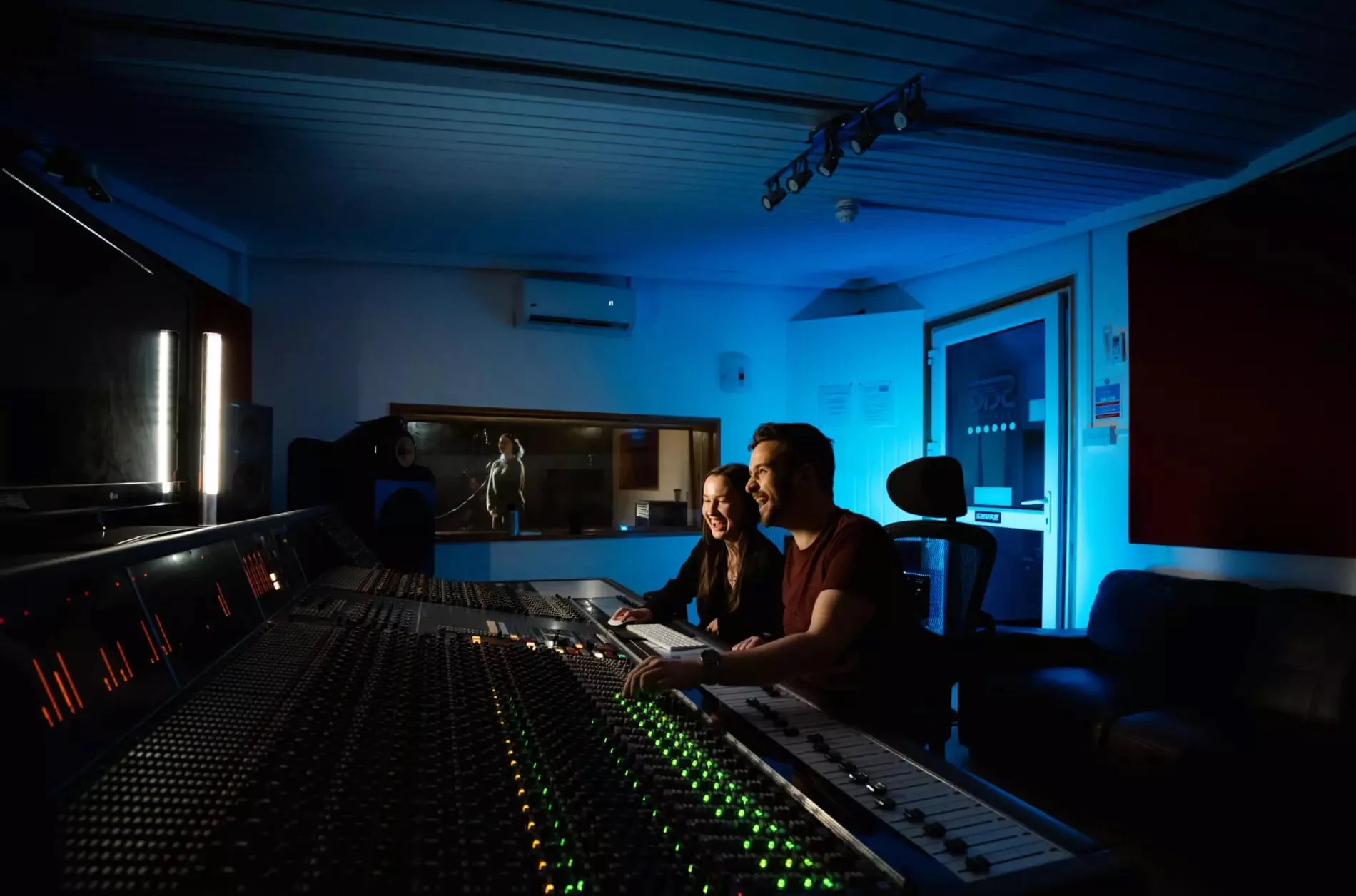
Complete your course faster by studying through 6 trimesters across 2 years.
Complete your course faster by studying through 6 trimesters across 2 years.
May 2026
September 2026
May 2026
September 2026
YOUR CAREER IN AUDIO BEGINS NOW
Course Structure
The Bachelor of Audio is broken up into three distinct stages, each designed to develop different skills.Module outcomes are achieved through a portfolio of artefacts, including macro and micro edits to a series of audio files, using basic audio editing tools with a DAW; and the setup and operation of a simple sound reinforcement system.
A typical topic list for this module includes the following:
Sound Theory and Psychoacoustics
Introduction to Digital Audio
Cabling and Connections
Basic Microphones and Loudspeakers
Live Sound Setups
Basic Audio Editing and Basic Digital Audio Workstation Operation
Soldering and Electronics Time Management
In ‘Desktop Music Production,’ students will learn to design sounds with synthesis and sampling techniques within a Digital Audio Workstation (DAW). They will compile and arrange music production(s), taking into account a basic understanding of music theory and of intellectual property. They will also apply EQ and Dynamics processing to a creative production, work with effects in-the-box, apply DAW-based mixing techniques to their productions, and effectively present their work.
Recording Techniques introduces students to a studio-based recording environment. They will build the theoretical knowledge and practical skills that are necessary to operate modern professional studio environments and demonstrate this through arranging and engineering recording sessions.
A typical topic list for this module includes the following:
Applied Microphones and Stereo Microphone Techniques
Console Layouts
Control Room / Live Room Layouts
Recording and Mixing Signal Flow for Small Studios
DAW Recording Workflow for Small Studios
Basic Studio Acoustics o Instrumental Recording Techniques
Location Recording
Studio Etiquette
Integration of Hardware Effects
Basic Project Management
The ‘Audio Production Industries’ module focuses on production workflows and techniques that are common across various audio fields, such as music and multimedia. Students will be introduced to the music and multimedia industries and explore the roles within them. Students will enhance their skill set in audio editing by investigating sound restoration, pitch & time correction and multitrack drum editing. They will also look at mixing techniques for both multimedia and music applications, within a studio environment. Finally, they will research and write about a relevant area of the audio industries.
A typical topic list for this module includes the following:
Introduction to the music industry, production and roles
Introduction to multimedia industries and the role of sound
Production planning o Listening analysis (songs / film soundtracks)
Advanced editing (sound restoration / drum editing / pitch and timing correction)
Media formats (sound formats / synchronisation / frame rates / design)
Studio mixing techniques
Research
Academic writing
Module outcomes are achieved through the development of a learning contract, the production of an advanced, specialized project, and a presentation and reflection on the work undertaken. Students may undertake industry-based ‘live projects’ as a part of their learning, and should seek advice from the module leader.
A typical list of topics for the module will include:
Project planning and management
Resource allocation
Self-assessment and reflection
Workplace engagement and integration
Communication and networking
Time management
Reporting and presentation
Communication and networking
Why SAE?
Thanks to the fact that our program has three semesters per year, instead of the usual two in Serbia, SAE students are able to complete a three-year, 180-ECTS bachelor’s program in only two years. The entire course is delivered in English, and the final diploma is awarded by our partner university from the United Kingdom (University of Hertfordshire). An SAE Institute diploma is highly respected in the audio industry.
Every student receives ample studio time for independent work, as well as one-on-one mentoring throughout all modules, not only during the final project. In addition, there is always a studio supervisor on duty who can help you solve any problem. This is the only way to become a professional audio producer in just two years.
SAE students begin earning money even during their studies, and after graduation they work all over the world: in studios in London (De Lane Lea), cultural centers (Sheikh Abdullah Al-Salem, Kuwait), concert halls (USA, Germany), Dubai, and various festivals. Many of them run their own production studios locally (such as CUNAMI Studio).
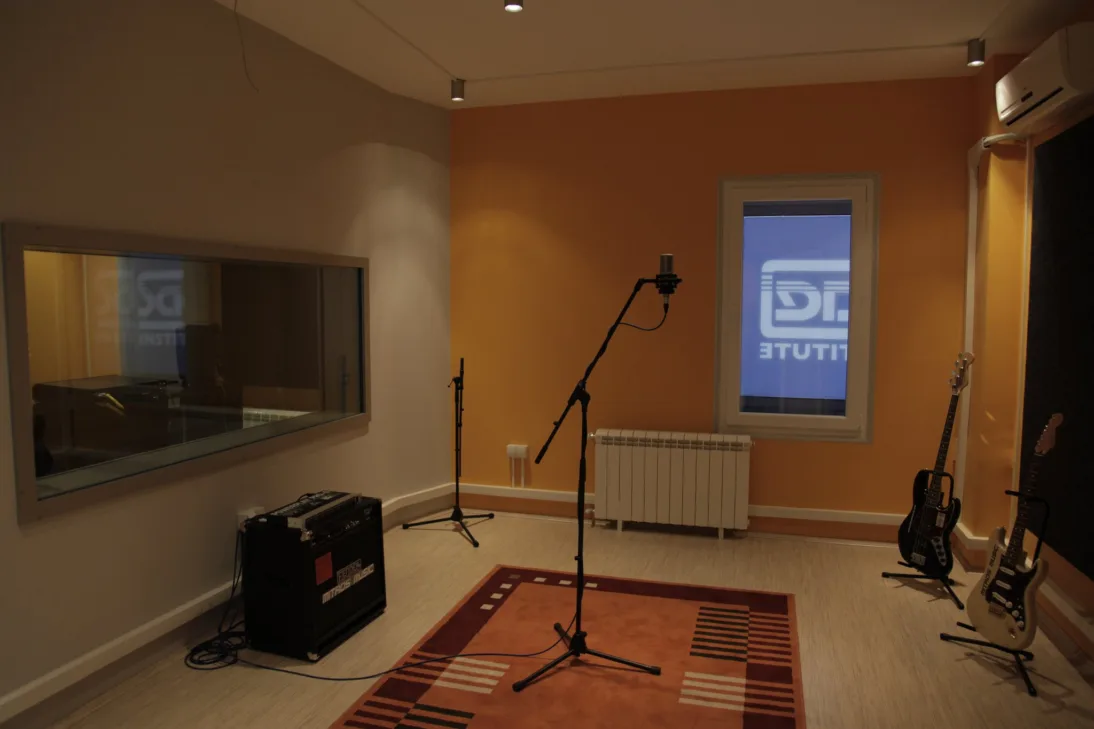
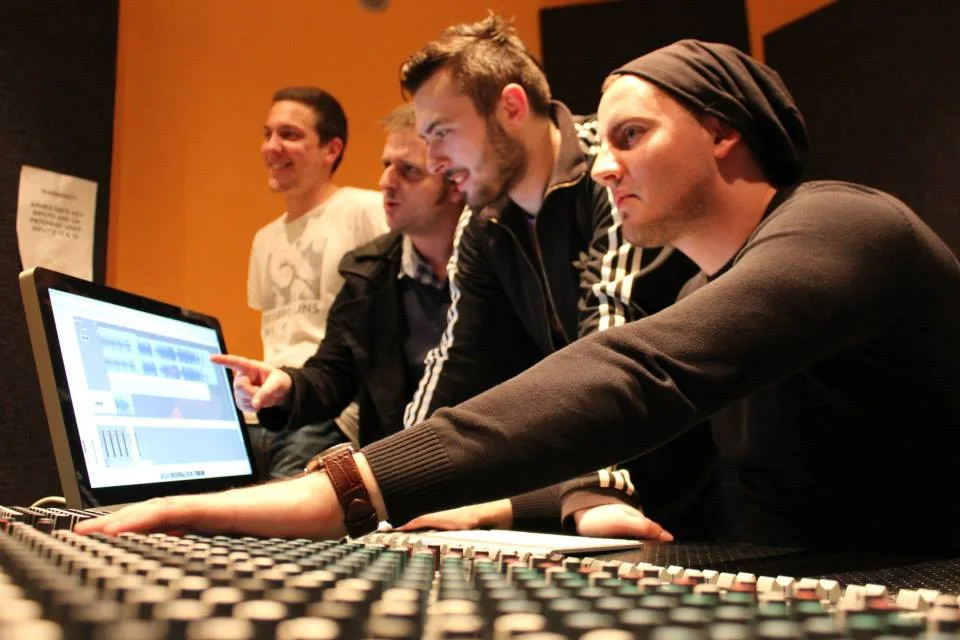
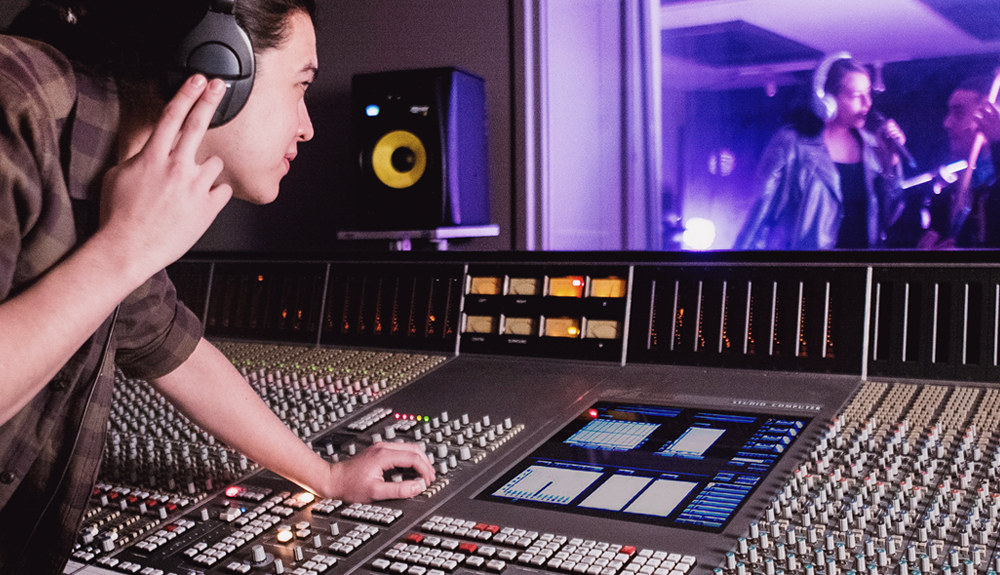
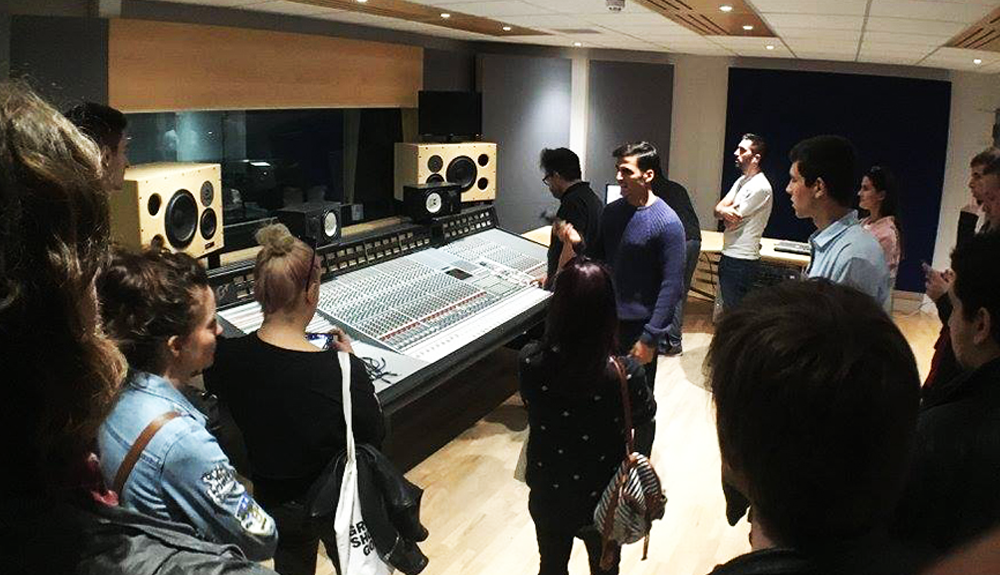
Student Spotlight
Meet your audio mentors
Our Partners
Audio Skills
Tools & software














